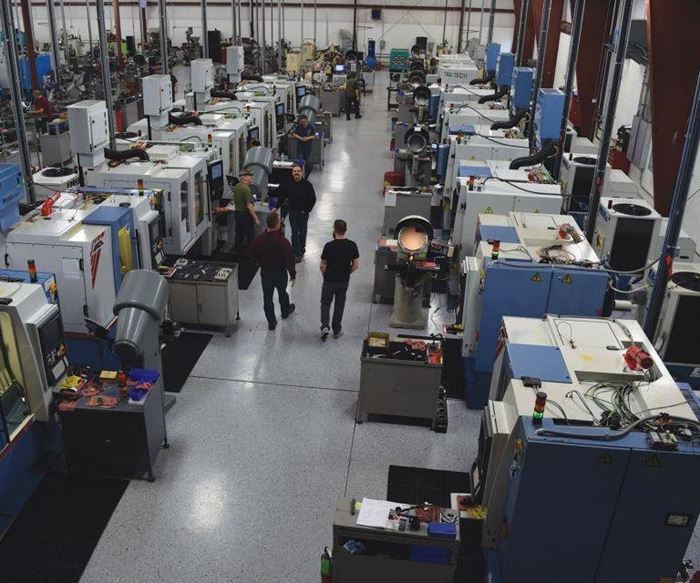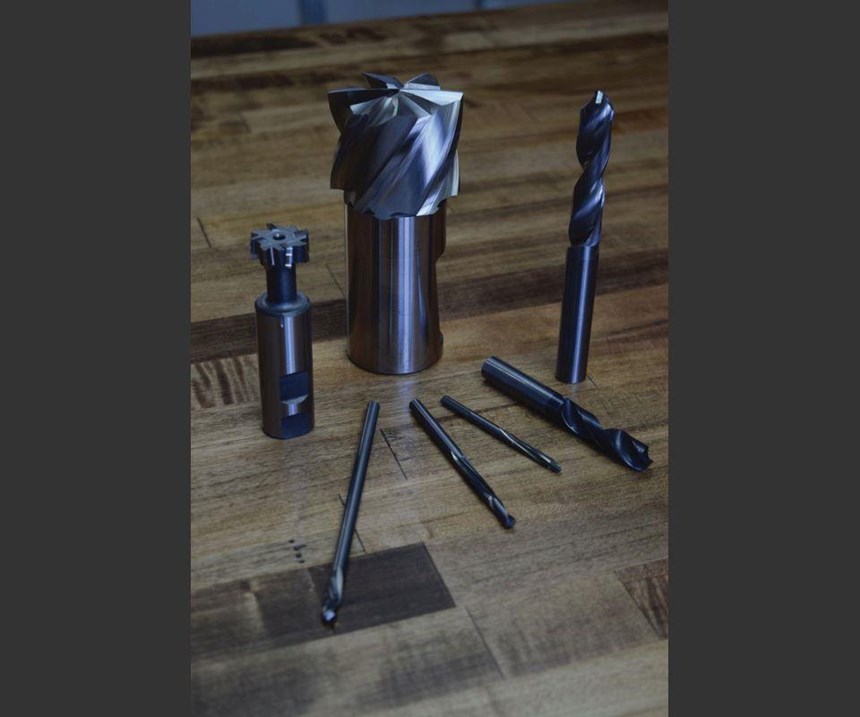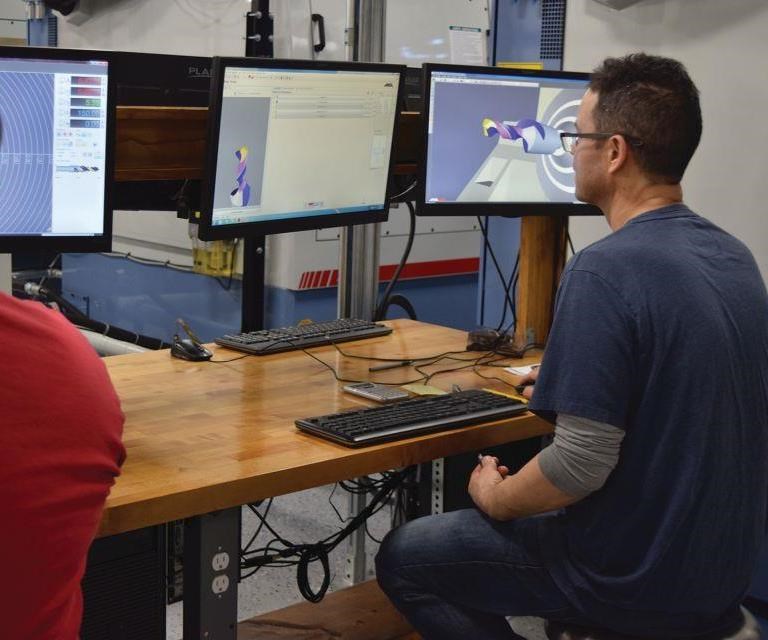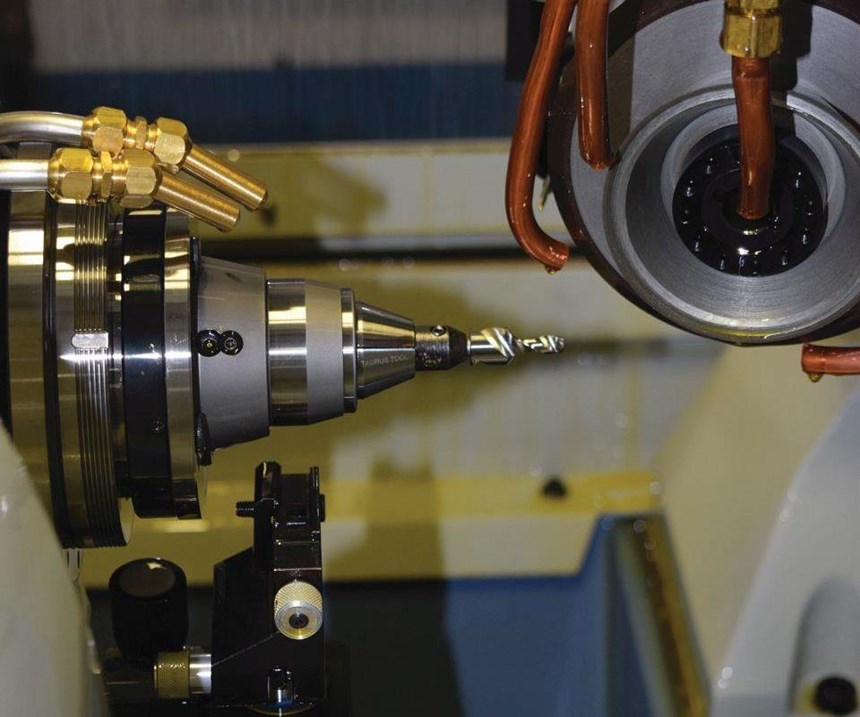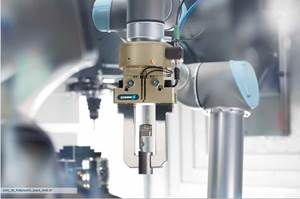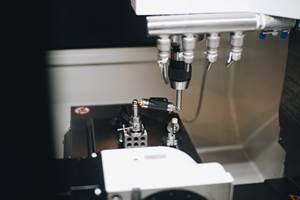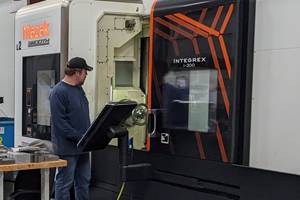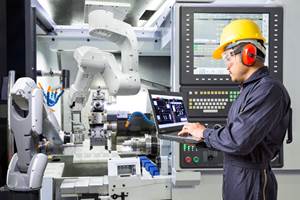Better Cutting Tool Production after Fire’s Destruction
A fire destroyed Taurus Tool and Engineering's facility, hindering improvement efforts. In its new facility, the company relies on ANCA tool grinding machines for standardized, streamlined production.
Share





After Taurus Tool and Engineering, a manufacturer of custom high speed steel (HSS) and carbide cutting tools, lost its production facility to a fire, it rebuilt its business with an entirely new approach. New production methods and management practices enabled the company to achieve six essential goals, and ANCA, a supplier of CNC tool grinders, played a key role in this recovery.
Founded in 1976, Taurus started as a multi-step cutting tool manufacturer in Schaumburg, Illinois. Over the years, it slowly replaced manual equipment with new, faster and more accurate CNC equipment in its 17,500-square-foot facility. The business flourished as Taurus became known for accurately engineered and manufactured cutting tools.
However, Taurus’ facility burned down in June 2014, and most of its CNC machines, fixtures and other equipment were destroyed. Deciding to rebuild quickly, the company acquired a larger 25,000-square-foot facility in Batavia, Illinois, that could handle the growth that the business had been starting to experience.
In February 2015, Taurus was purchased by employees Jim Kantak, president, Roger Wise, engineering manager, and Richard Thiele, production manager, all of whom had long histories with the company. Today, Taurus has more than 30 employees and manufactures solid, round HSS and carbide specialty cutting tools ranging in diameter from 1/8 to 3 inches.
The fire turned out to provide Taurus with an unusual opportunity to put into place practices that would bring the company to the level of performance the new owners wanted to reach. “We began filling our new facility with technology that would improve workflow, reduce production costs, and promote batch manufacturing capability and tool quality,” Mr. Kantak says. “Pre-fire, we had purchased two ANCA FastGrind CNC tool grinders, which represented our company’s biggest machine acquisitions in years. The initial reason for the purchases was to integrate the tool production machines with our computer server so we could save all the programs in one place rather than on multiple machines locally.” Today, the shop has 16 ANCA grinding machines.
It was also at that time that the shop changed its facility layout to improve flow and began working toward six specific goals, including:
Provide fresh tool-design thinking for better tool performance. “It was a struggle for six months after we moved into the new shop full of ANCAs,” Mr. Theile says. “Our employees had to learn a new process for making tools.” He asked them to consider what would be the craziest design, surface finish and geometry to make the optimum tool for the customer’s application.
Taurus set up what it calls its “simulation station” on the shop floor, providing four seats of ANCA Cimulator3D software that operators can use at any time. Two other ANCA Cimulator3D seats are in the front office. Cimulator3D simulates the programmed tool path just as it would be ground on the machine. New tool programs can be verified for size, shape, machine clearance and even cycle-time estimates. Cimulator3D maintains continuous work flow through the machine by reducing development time and trial grinding.
“Within ANCA Cimulator, we create a solid model of our tool designs and optimize them in the design phase before we put the material in the grinder,” Mr. Theile says. “This works to our advantage in tool cost, because we don’t use the CNC grinder to try tools. We feel that with the Cimulator, approximately 70 percent of the first tools we grind are shippable products. Before, it was slim to none, because the tweaking was done on machine.”
Save all programs in one place and eliminate paper. Taurus wanted to get away from the previous practice of assigning specific machines to produce certain tools, largely because it created bottlenecks. Machine flexibility, versatility and the capability to store all tool programs in one location were essential to achieving this.
Mr. Theile says the shop previously had to run certain types of tools on the same machine with the same wheel packs, which presented a massive quality concern when all tool programs were saved locally. Today, all 16 ANCA machines run off the company’s server. For each job, engineering approves the program and machine setup so that each time it is run it is identical to the previous one. In addition, all notes are saved in the program, yielding a paperless process that ensures any changes are documented and updated.
Enable any machine to produce any tool. Today, Taurus has four Fast Grind models and 12 MX7 models, with eight of the MX7s using ANCA LinX cylindrical linear motors in the X and Y axes and glass scales for accurate positioning. According to Taurus, this improves reliability and contributes to improved tool surface finish.
Designed for production grinding, the MX7 CNC tool grinder has a 10,000-rpm, 51-hp permanent-magnet spindle that is said to provide high torque at lower rotational speed, making it well-suited for carbide grinding. It can grind tools with diameters ranging to 25 mm, and its direct-drive linear motor provides even force over the entire stroke and can track motion commands accurately and repeatedly, resulting in better surface finish. The linear motor is also said to reduce cycle times due to its high acceleration and fast traverse speed.
Reduce cycle times and improve turnaround times. Mr. Kantak says the versatility of the ANCAs enables the shop to consider new tools that it previously could not competitively bid on because cycle times were so long and the production process was so detailed. For example, the cycle time for the company’s largest running job has been reduced by 40 percent. In addition, on a range of 0.5-inch HSS end mills, cycle times are approximately 30 percent faster, due in part to the six-wheel automatic changer. Plus, setups are commonly 50 percent faster.
Capture tool makers’ experience and eliminate tribal knowledge. “We had a mix of older toolmakers who are skilled in the art of toolmaking and younger people who are comfortable with the technology,” Mr. Theile says. “We now use the ANCAs with the Cimulator and ToolRoom software packages to extract tribal knowledge from our experienced employees so we capture it for the long term.” In addition, setup notes can be attached to a tool’s part program that pop up when the program is opened to ensure that any improvements made during the last run can be implemented in the new run.
Make programming easy. Taurus has found that menu-driven programming developed by ANCA also makes it easy to grind the tools designed in Cimulator. Similarly, ANCA’s ToolRoom software suite applies to a range of tool types and applications with an intuitive interface to input tool geometry parameters. Mr. Theile says ToolRoom ensures that the MX Linear machines will efficiently handle any regrinding or manufacturing challenge, too.
The machine operator is also able to quickly set up or modify tool programs, depending on the tool type. For more proficient users, advanced software pages enable complex tool designs and operations to be achieved. ToolRoom supports the grinding of drills, end mills, profile tools, burrs, routers and many other special applications.
Related Content
Lean Approach to Automated Machine Tending Delivers Quicker Paths to Success
Almost any shop can automate at least some of its production, even in low-volume, high-mix applications. The key to getting started is finding the simplest solutions that fit your requirements. It helps to work with an automation partner that understands your needs.
Read MoreBallbar Testing Benefits Low-Volume Manufacturing
Thanks to ballbar testing with a Renishaw QC20-W, the Autodesk Technology Centers now have more confidence in their machine tools.
Read More5 Tips for Running a Profitable Aerospace Shop
Aerospace machining is a demanding and competitive sector of manufacturing, but this shop demonstrates five ways to find aerospace success.
Read More6 Machine Shop Essentials to Stay Competitive
If you want to streamline production and be competitive in the industry, you will need far more than a standard three-axis CNC mill or two-axis CNC lathe and a few measuring tools.
Read MoreRead Next
Registration Now Open for the Precision Machining Technology Show (PMTS) 2025
The precision machining industry’s premier event returns to Cleveland, OH, April 1-3.
Read More5 Rules of Thumb for Buying CNC Machine Tools
Use these tips to carefully plan your machine tool purchases and to avoid regretting your decision later.
Read MoreSetting Up the Building Blocks for a Digital Factory
Woodward Inc. spent over a year developing an API to connect machines to its digital factory. Caron Engineering’s MiConnect has cut most of this process while also granting the shop greater access to machine information.
Read More

